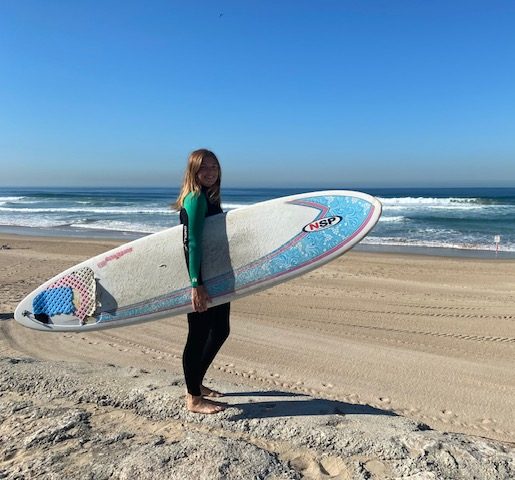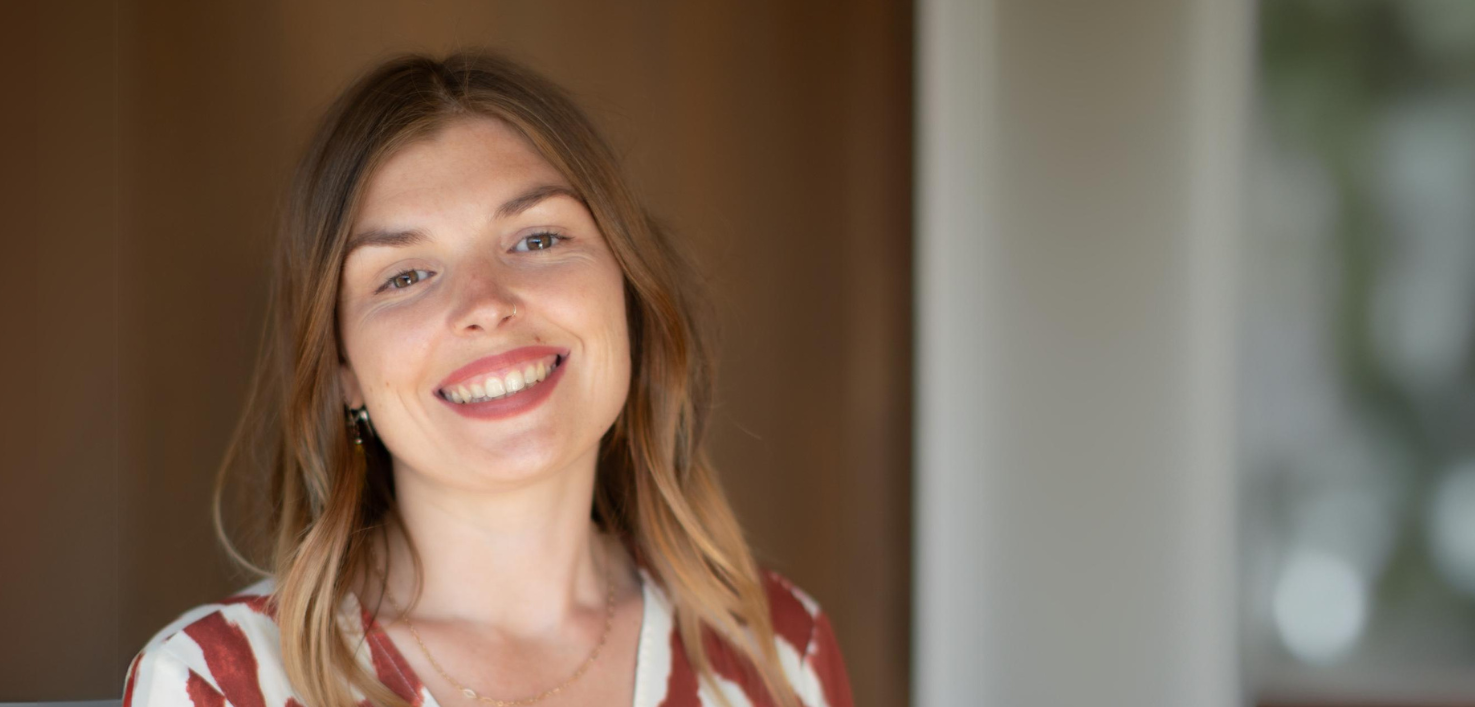Please tell us about yourself
I am the founder of The Joyful Activists, a global wellbeing community for activists, humanitarians and charity people.
I am a gender and education consultant, a trauma-informed doula, currently in my final year of an MA in Education, Gender, and International Development.
My MA focuses on Mental Health and Psychosocial Support (MHPSS), Education in Emergencies (EiE), and the nexus of conflict, peace, and education across Africa and the Middle East.
Location-wise, I’m currently exploring the beautiful surf spots of Sri Lanka, and I spend much of my time between London and Portugal. I am currently looking for my next work opportunity, so my location may change depending on the role!
What is your professional background and how did you first get involved in humanitarian/development work?
I hold a bachelor’s degree in German and Italian, and I have lived, worked and studied in eight countries.
I began my career as a teacher, moving into playwork, mentoring and therapeutic youth work. I specialised in Thrive, using attachment, neuroscience and child development to support children’s emotional and social learning, fascinated by the impact of education and environment on development.
I have designed and scaled impactful, award-winning programmes focusing on education, wellbeing and girls’ rights, working and consulting for local, national and international charities and INGOs.
How did you first hear about HLA learning initiatives and what made you get involved?
I dedicate a lot of time to my professional development, always seeking ways to challenge, diversify and broaden my knowledge and thinking.
I discovered the HLA learning initiatives via LinkedIn, and I’ve been taking courses and attending webinars ever since. I appreciate that it is accessible, varied and engaging.
You attended the Humanitarian Xchange 2024 in London earlier this year – what were your key learning takeaways from the event?
I am passionate about decentralising Western epistemology of education, mental health and trauma-informed care, and I was inspired to be in a room with sector professionals and academics who were actively interrogating and challenging the system.
Here are some of the most powerful conversations I took away from the day:
- “How do we address the colonial legacy of fundraising?”
- “Do aid organisations tell the truth to people in crisis?”
- “Does the presence of aid make governments less accountable?”
- “Can humanitarian organisations move away from hegemonic norms and narrow self-interest to truly decolonise their practice?”
I want to work with people and organisations who have these courageous and necessary conversations, so I came away feeling hopeful to find my next opportunity in an organisation that asks these questions and acknowledges that they don’t have all the answers.
What do you enjoy most about HLA webinars?
Hearing from a diverse range of speakers and organisations, and exploring aspects of humanitarian work that I may not come across in my own career or academic studies.
One of the webinars discussed the importance of networking, so I’m grateful to be able to network with professionals from all over the world.
What kind of impact has your engagement with these learning initiatives had on your approach or perspective to your work?
The HLA learning initiatives have been helpful for me to discover which themes and topics I gravitate to. MHPSS, girls’ rights, EiE, play, education and humanitarian wellbeing are always top of the list. It’s good to see courses offered in a variety of languages, and I’m grateful that HLA learning initiatives are free to access.
What’s your next learning goal?
I’ve just started the Kaya course Learning Through Play in EiE, which I’m excited to complete.
My main learning goal for the next year is to complete my MA dissertation. I am still deciding on its focus, so I’ll use the HLA short courses on Kaya to find topics I’m inspired or intrigued to learn more about.

I dedicate a lot of time to my professional development, always seeking ways to challenge, diversify and broaden my knowledge and thinking. I discovered the HLA learning initiatives via LinkedIn, and I’ve been taking courses and attending webinars ever since. I appreciate that it is accessible, varied and engaging.
The aim of featuring HLA learners on our website is to inform and inspire humanitarians and the HLA community. These articles do not constitute endorsement or recommendation of the individuals featured. Views expressed by members are solely their own.


